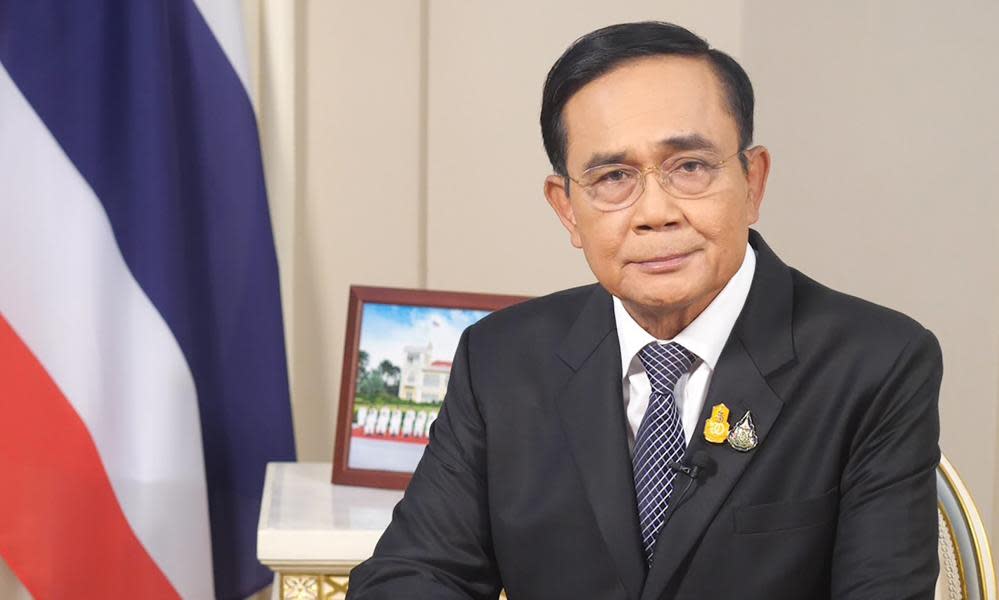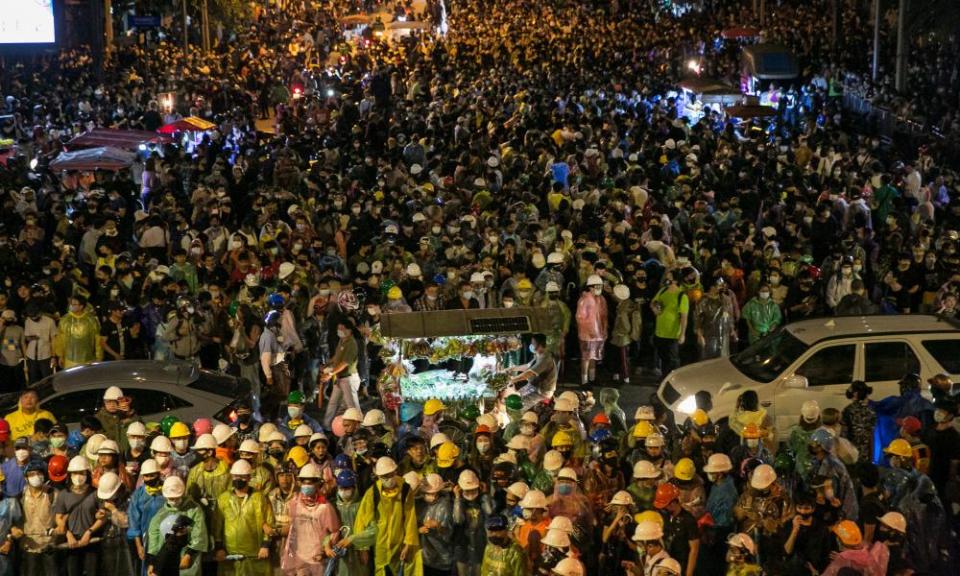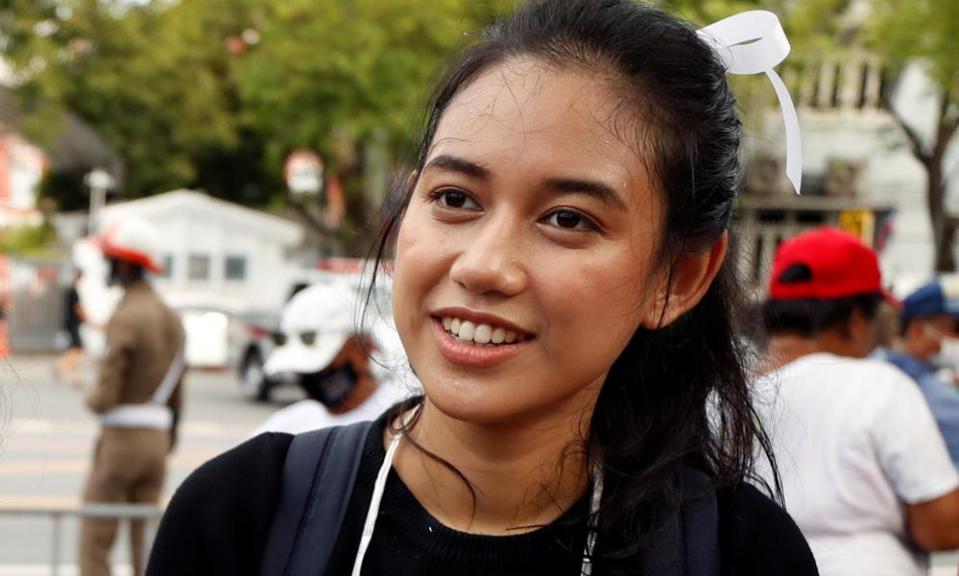Thailand's prime minister lifts emergency measures

Thailand’s prime minister has lifted severe emergency measures imposed last week to halt months of pro-democracy protests that instead sparked even bigger, nationwide rallies against his government and the monarchy.
Prayuth Chan-ocha, a former army general who first came to power in the 2014 coup, said on Wednesday he was moving to de-escalate the situation, adding that the country “must now step back from the edge of the slippery slope that can easily slide to chaos”.
As he spoke, tens of thousands of people marched on Government House, where protest leaders rejected his offer and announced a three-day deadline for his resignation.
Over the past three months demonstrations have taken place across Thailand, led by young people who have challenged the country’s establishment, including the powerful monarchy – an institution long shielded from public criticism. Protest leaders have shocked many observers by risking long jail sentences to demand that the wealth and power of the royal family be curbed.
Related: The king and I: the student risking jail by challenging Thailand's monarchy
Last week, the authorities tried to halt protests by introducing an emergency decree in the capital that bans gatherings of more than four people and the publication of news or online information that “could create fear” or “affect national security”. Dozens of people, including protest leaders, have been arrested.
The measures, however, sparked even larger rallies and prompted protesters to employ cat and mouse tactics to outmanoeuvre the police. Using encrypted messaging services, they announced rallies at short notice, and assembled at multiple locations across Bangkok.
On Friday, police fired water cannon to disperse thousands of people gathered in the capital, including school students. This further fuelled anger among protesters, and drove tens of thousands to take to the streets over the weekend.

In a televised address on Wednesday, Prayuth accused a minority of protesters of “brutal attacks” on the police on Friday – something witnesses did not recall at the time, according to Reuters. He also conceded that Thailand would “not get to a better society through the use of water cannon”.
Protesters’ voices had been heard, he said: “It is now time for them to let their views be reconciled with the views of other segments of Thai society through their representatives in parliament.”

An emergency session will be held next week in parliament, whose upper house was entirely appointed by Prayuth’s former junta.
On Thursday, a government statement confirmed that as of midday (0500 GMT) the emergency measures banning gatherings of more than four people would be lifted.
Demonstrators rejected Prayuth’s comments.
“Our fight isn’t over as long as he doesn’t resign. If within three days he doesn’t resign, he will face the people again,” Patsaravalee Tanakitvibulpon, a protest leader also known as Mind, told crowds. Just hours later she was arrested.
In addition to demands for reform of the monarchy and for the prime minster’s resignation, protesters are also calling for a new constitution, which they say unfairly skewed last year’s elections in Prayuth’s favour.
At least 80 people have been arrested for taking part in demonstrations, according to Thai Lawyers for Human Rights. This includes three people who were charged under a rarely used law banning “violence against the queen” after a group of people heckled a royal motorcade carrying Queen Suthida last week. The charges carry a possible death sentence if her life is thought to have been threatened. Others have been charged with sedition, which carries a maximum seven-year prison sentence.


